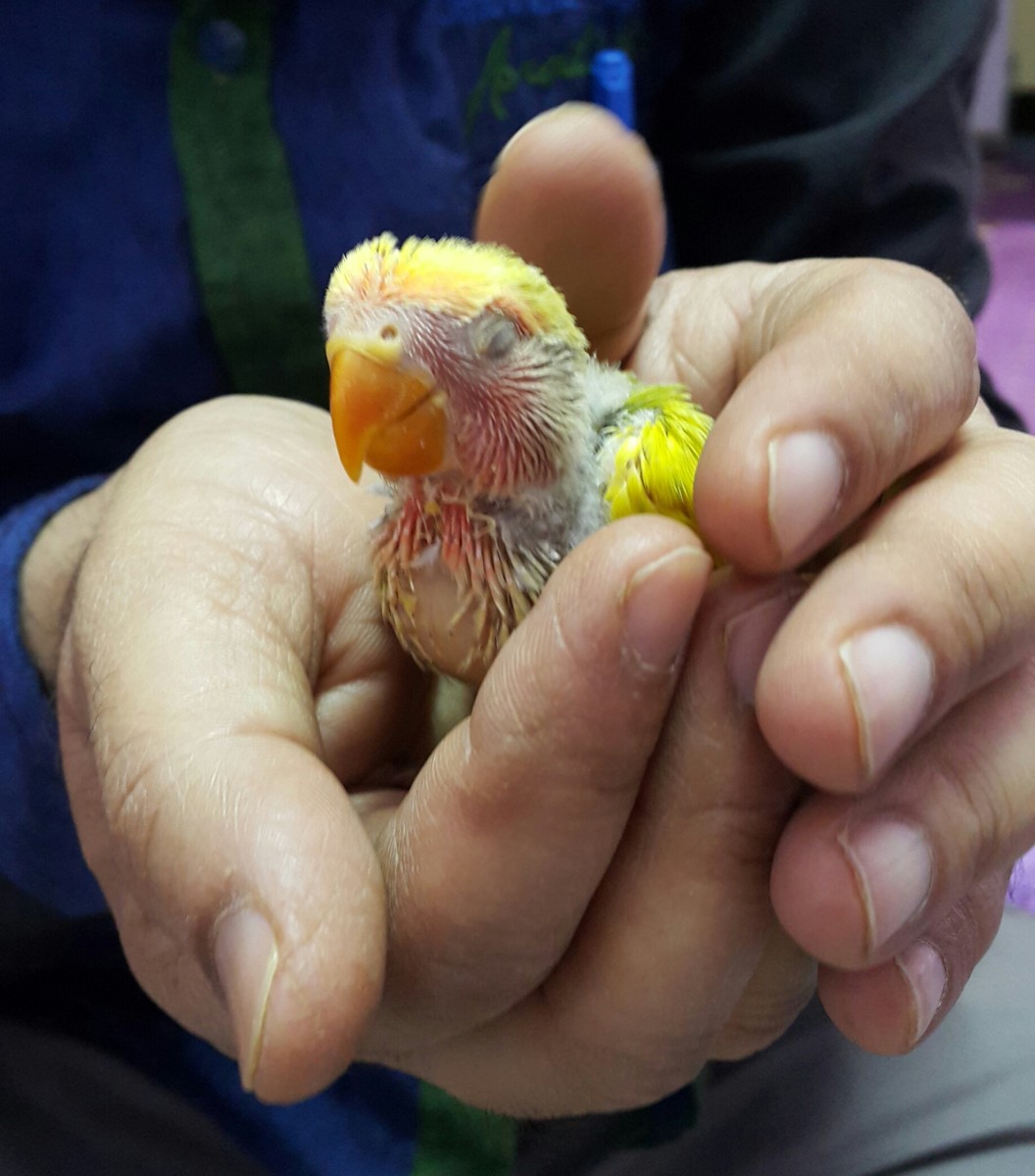
Baby Lovebird Care: A Comprehensive Guide
Introduction
Lovebirds, known for their affectionate nature and vibrant plumage, are popular pet birds. While they are relatively easy to care for, baby lovebirds require specialized attention to ensure their proper growth and development. This comprehensive guide will provide you with all the essential information you need to provide optimal care for your baby lovebird.
Preparing for Baby Lovebirds
Before bringing baby lovebirds home, it is crucial to prepare a suitable environment for them. This includes:
- Cage: A spacious cage with ample room for movement and play is essential. Ensure it has horizontal bars for climbing and a solid bottom to prevent injuries.
- Nest Box: Baby lovebirds need a cozy and secure nest box for sleeping and nesting. Choose a box that is small enough to provide a sense of security but large enough for the babies to move around comfortably.
- Perches: Provide a variety of perches of different sizes and textures to encourage foot exercise and prevent pressure sores.
- Toys: Toys are essential for mental stimulation and entertainment. Choose toys that are safe for babies, such as bells, mirrors, and soft toys.
Feeding Baby Lovebirds
Baby lovebirds are altricial, meaning they are born helpless and rely on their parents for food. If you are hand-feeding your baby lovebirds, you will need to use a specialized formula designed for baby birds.
- Feeding Schedule: Feed baby lovebirds every 2-3 hours during the day and every 4-5 hours at night. As they grow older, you can gradually increase the time between feedings.
- Feeding Method: Use a syringe or dropper to gently feed the formula to the baby. Do not force-feed the baby, as this can cause aspiration.
- Amount: Feed the baby approximately 10% of its body weight at each feeding. As the baby grows, adjust the amount accordingly.
Weaning Baby Lovebirds
Once baby lovebirds reach around 4-6 weeks of age, they can begin to be weaned onto a solid diet.
- Introduce Soft Foods: Start by offering soft foods such as mashed fruits, vegetables, and cooked rice. Gradually introduce harder foods as the baby gets older.
- Encourage Self-Feeding: Place the food in a shallow dish and allow the baby to explore and feed itself.
- Monitor Progress: Observe the baby’s eating habits and adjust the weaning process as needed.
Cage Hygiene and Maintenance
Maintaining a clean and hygienic cage is essential for the health of baby lovebirds.
- Daily Cleaning: Remove any droppings, uneaten food, and soiled bedding daily.
- Weekly Cage Cleaning: Thoroughly clean the cage with a bird-safe disinfectant. Rinse the cage thoroughly to remove any residue.
- Perch and Toy Cleaning: Regularly clean perches and toys with warm water and a mild soap solution.
Health and Veterinary Care
Regular veterinary checkups are crucial for ensuring the health of baby lovebirds.
- Initial Exam: Take the baby lovebird to a veterinarian for an initial examination to assess its overall health and rule out any underlying conditions.
- Vaccinations: Vaccinations can protect baby lovebirds from common diseases. Consult with your veterinarian about the appropriate vaccination schedule.
- Parasite Control: Baby lovebirds can be susceptible to parasites. Regular deworming and parasite control measures are essential.
Socialization and Training
Socialization and training are important aspects of baby lovebird care.
- Socialization: Expose baby lovebirds to different people, sounds, and environments to help them become well-adjusted and comfortable around humans.
- Training: You can begin training baby lovebirds as early as 6-8 weeks of age. Start with simple commands such as "step up" and "come."
Common Health Issues
Baby lovebirds can be prone to certain health issues, including:
- Feather Plucking: This can be caused by stress, boredom, or nutritional deficiencies.
- Proventricular Dilatation Disease (PDD): A fatal disease that affects the digestive system.
- Feather Cysts: These are fluid-filled sacs that can develop on the feathers.
- Bacterial and Fungal Infections: These can be caused by poor hygiene or a weakened immune system.
Conclusion
Providing proper care for baby lovebirds requires dedication, patience, and a commitment to their well-being. By following the guidelines outlined in this guide, you can ensure that your baby lovebirds thrive and become healthy, happy companions for years to come. Remember to consult with a qualified veterinarian for any specific health concerns or advice.
